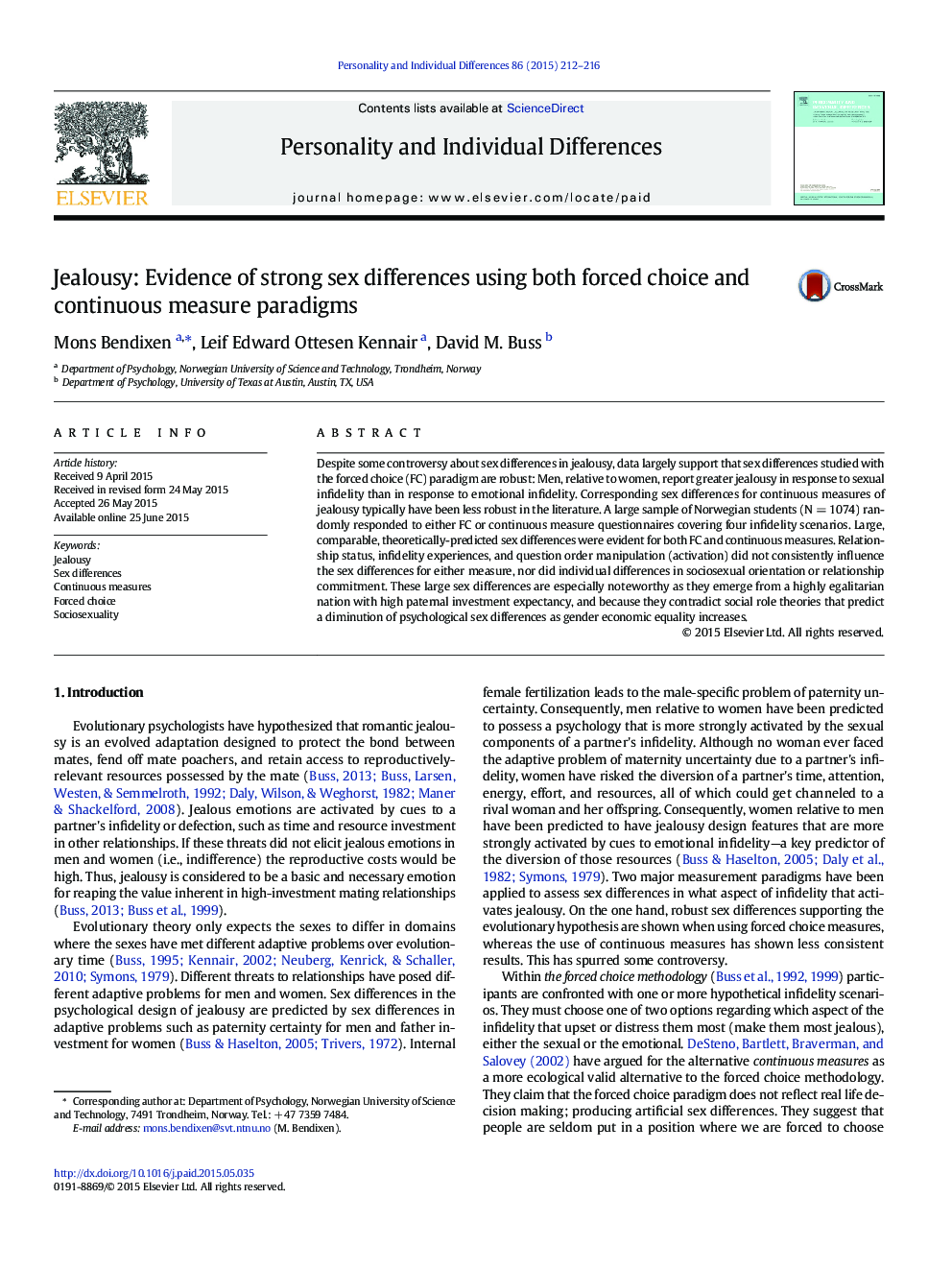| Article ID | Journal | Published Year | Pages | File Type |
|---|---|---|---|---|
| 889978 | Personality and Individual Differences | 2015 | 5 Pages |
•Strong sex differences in jealousy responses across measurement paradigms•Sex differences in jealousy responses not subject to moderation or mediation•Noteworthy sex differences in a nation with high paternal investment expectancy•Findings contradict explanations derived from social role theories.•Findings support evolutionary predictions.
Despite some controversy about sex differences in jealousy, data largely support that sex differences studied with the forced choice (FC) paradigm are robust: Men, relative to women, report greater jealousy in response to sexual infidelity than in response to emotional infidelity. Corresponding sex differences for continuous measures of jealousy typically have been less robust in the literature. A large sample of Norwegian students (N = 1074) randomly responded to either FC or continuous measure questionnaires covering four infidelity scenarios. Large, comparable, theoretically-predicted sex differences were evident for both FC and continuous measures. Relationship status, infidelity experiences, and question order manipulation (activation) did not consistently influence the sex differences for either measure, nor did individual differences in sociosexual orientation or relationship commitment. These large sex differences are especially noteworthy as they emerge from a highly egalitarian nation with high paternal investment expectancy, and because they contradict social role theories that predict a diminution of psychological sex differences as gender economic equality increases.
